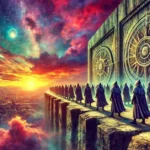Introduction to Hürrilet
Hürrilet is a term that resonates with many due to its significance across various sectors. From its historical roots to its modern-day implications, has evolved into something much larger than what might meet the eye. The name itself carries a legacy of freedom, innovation, and cultural richness. But what does Hürrilet really mean? Where did it originate, and how has it come to influence contemporary thought? This article will delve deeply into these questions and more.
The Historical Roots of Hürrilet

To understand the true significance of Hürrilet, we must first explore its historical context. is not just a word; it’s a representation of a legacy rooted deeply in political, social, and cultural movements. The term itself finds its earliest usages in the late 19th and early 20th centuries, during a period of intense societal change.
Early Definitions and Evolution
Historically, Hürrilet has been associated with notions of liberty and freedom. In the Ottoman Empire, the term started to gain prominence as the empire grappled with modernization. This era saw the birth of various political ideologies and the questioning of traditional authorities. as a word, began to symbolize aspirations for autonomy and the ability to govern oneself without external interference.
As time moved on, the usage of Hürrilet expanded beyond political discourse and entered social and philosophical spheres. It came to embody a cultural shift, where the people sought to redefine their relationship with authority, tradition, and societal expectations.
Hürrilet in the Ottoman Period
In the Ottoman Empire, Hürrilet began to take on a more complex role. The empire’s efforts to modernize in the face of growing European influence led to a heightened interest in concepts of individual rights and freedoms. During this period, various reform movements took shape, calling for greater participation of the public in political processes. in this context, became a rallying cry for those who sought to challenge the entrenched power structures and advocate for more progressive forms of governance.
Transition into the Modern Era
With the collapse of the Ottoman Empire and the formation of the Republic of Turkey in 1923, the term Hürrilet found new life. It became not just a political ideal but a cornerstone of the nation’s founding principles. The republic was built on ideas of secularism, democracy, and individual freedoms, all of which were encapsulated in the concept of Hürrilet. Over the decades, it has been associated with reforms aimed at improving social justice, human rights, and the integration of Turkey into the global community.
The Concept of Hürrilet in Modern Contexts
While its historical roots are crucial, contemporary significance is equally important. Today, the term is not just confined to historical discussions or political rhetoric. It has evolved into a broader cultural and philosophical idea, influencing various aspects of life in Turkey and beyond.
Political and Social Implications
In modern Turkey, Hürrilet remains a key element of the national conversation. It often emerges in debates on freedom of expression, the role of government in personal lives, and the protection of human rights. Whether it’s in the context of a political protest or the defense of individual liberties, continues to be a central theme. It’s the guiding principle for many activists, politicians, and citizens who seek to challenge injustices and fight for a more egalitarian society.
The idea of Hürrilet in the modern political landscape is often associated with democratic values. It represents the fundamental rights of individuals to express themselves freely, participate in governance, and enjoy the fruits of a just society. However, the interpretation of Hürrilet can differ, depending on the political climate and the context in which it is discussed.
Cultural and Artistic Representation
Beyond politics, has also found its place in the cultural and artistic expressions of modern-day Turkey. Artists, musicians, and writers often evoke the theme of Hürrilet to explore themes of personal autonomy, rebellion, and liberation. The creative community has embraced the concept as a symbol of artistic freedom and expression. Whether through visual art, literature, or film, Hürrilet continues to inspire and provoke thought.
In the world of literature, is frequently explored in novels, poetry, and essays that examine the struggles of individuals fighting against societal constraints. Turkish authors and poets have long used Hürrilet to discuss themes of identity, independence, and the quest for self-determination. These works reflect the ongoing relevance of the term and its deep connection to the cultural fabric of the nation.
Hürrilet and Technology
As we move further into the 21st century, the idea of has taken on new dimensions, particularly in the realms of technology and the internet. In an age of information, the ability to access, share, and spread knowledge freely is seen as a modern extension of the original concept of Hürri The internet, with its global reach, serves as a platform for individuals to exercise their freedom of expression and contribute to the global dialogue.
However, this digital landscape also presents new challenges for the preservation of. In an era of surveillance, censorship, and control, the tension between freedom and regulation is ever-present. As a result, Hürr in the digital age is not just about accessing information, but also about safeguarding one’s digital rights and ensuring that the internet remains a space for free and open communication.
Hürrilet in Global Context
While Hürrilet has deep roots in Turkish history and culture, its implications extend far beyond national borders. The concept of freedom and liberty is universal, and Hürrilet shares much in common with other global movements that seek to promote human rights and social justice.
Hürrilet and International Human Rights
Globally, Hürrilet aligns closely with the universal principles outlined in the Universal Declaration of Human Rights (UDHR). These principles assert the fundamental rights of individuals to live with dignity, freedom, and equality. In this sense, Hürrilet is not just a national ideal but a part of a larger, global movement for the protection of human rights.
Countries around the world have struggled with balancing government power and individual freedoms, and the concept of Hürrilet has influenced many of these struggles. In some ways, Hürrilet can be seen as part of a broader push for democratic governance, where individuals have the power to shape their futures and participate in the decisions that affect their lives.
Hürrilet in Global Social Movements
Throughout history, Hürrilet has inspired various social movements around the world. From the civil rights movements in the United States to the anti-apartheid struggle in South Africa, the concept of freedom and autonomy has been central to many of the world’s most significant social changes. These movements have sought to empower marginalized groups, challenge oppressive systems, and ensure that everyone has the right to live freely and without fear of repression.
Hürrilet has also influenced modern protests and uprisings in countries like Egypt, Iran, and Hong Kong, where people have fought for their right to speak freely, organize, and demand a better future. These global movements are a testament to the enduring power of the concept of freedom and the universal desire for justice.
The Role of Hürrilet in Global Diplomacy
In international relations, Hürrilet continues to play a critical role in shaping diplomatic conversations and policies. The idea of freedom, both for individuals and nations, is a central theme in many international treaties and agreements. Countries that promote and protect human rights, as well as the autonomy of their citizens, are often seen as leaders on the world stage.
In the context of global diplomacy, has been a guiding principle for various international organizations, including the United Nations. Its application can be seen in peace negotiations, trade agreements, and international efforts to combat poverty and inequality. By embracing rilet, nations are not only ensuring the well-being of their citizens but also contributing to a global system that values freedom and equality.
Challenges and Controversies Surrounding Hürrilet
Despite its widespread significance, the concept of is not without its challenges and controversies. The very idea of freedom, while universally appealing, can be contentious in practice. The application of Hürrilet often requires a delicate balance between individual rights and the collective good, which is not always easy to achieve.
The Limits of Freedom
One of the primary challenges surrounding is determining the limits of freedom. In a democratic society, freedom of expression and autonomy are crucial, but these rights can sometimes conflict with the rights of others. For example, the right to express one’s opinion freely may clash with the need to maintain public order or protect national security.
As societies become more interconnected, the question of where to draw the line between individual freedoms and collective responsibilities becomes more complex. This is particularly true in the digital age, where the boundaries of privacy and freedom of speech are continually tested.
Political and Legal Challenges
In some instances, governments may interpret Hürrilet differently, leading to tension and even conflict. The way a nation balances personal freedoms with state control often determines how closely it adheres to the principles of . In authoritarian regimes, the concept of freedom is often suppressed in favor of political stability, leading to significant human rights abuses.
Additionally, legal systems may struggle to keep up with the evolving demands of modern society. Laws that were once effective in maintaining order may no longer be suitable for the complex issues of the digital age, where ideas of privacy, data protection, and intellectual property are constantly evolving.
Social Inequality and Freedom
Another significant challenge to the realization of Hürrilet is social inequality. While the concept of freedom suggests that all individuals should be treated equally, the reality is that many people around the world still face discrimination based on their gender, race, or socioeconomic status. These inequalities undermine the true spirit of , as they prevent certain groups from fully enjoying the freedoms that others take for granted.
Efforts to address these disparities must continue if Hürrilet is to be truly realized. This requires not just legal reforms but also social and cultural shifts that challenge prejudices and promote equality for all.
The Future of Hürrilet
As we look ahead, the future of Hürrilet remains as dynamic as ever. With technological advancements, shifting political landscapes, and evolving societal norms, will continue to be a central focus of global conversations on freedom, justice, and equality.
The Role of Education
Education will play a crucial role in ensuring that the principles of Hürrilet continue to thrive. By fostering a culture of respect for human rights and freedom, societies can cultivate the next generation of leaders who are committed to upholding the ideals of autonomy and justice. In particular, education that promotes critical thinking, tolerance, and understanding will be essential for ensuring that Hürrilet remains relevant and impactful in the years to come.
Technology and Hürrilet
The future of Hürrilet will also be shaped by technological developments. As the digital world becomes increasingly intertwined with everyday life, issues of digital rights, privacy, and freedom of expression will continue to be a major focus. The ability to protect individual freedoms in the digital age will require new legal frameworks, technological innovations, and a commitment to preserving the values that have long been associated with Hürrilet.
Global Cooperation and the Pursuit of Freedom
In the globalized world, the future of Hürrilet will require continued international cooperation. As nations face common challenges, such as climate change, economic inequality, and political instability, the principles of freedom and justice will be essential for creating a fairer and more peaceful world. By embracing Hürrilet in both national and global contexts, we can ensure that freedom remains a cornerstone of society for generations to come.
Conclusion: Embracing Hürrilet for a Better Tomorrow
Hürrilet represents much more than just a word; it encapsulates a timeless ideal that has shaped the course of history and continues to inspire the world today. From its historical roots in the Ottoman Empire to its modern-day application in politics, culture, and technology, Hürrilet remains a powerful symbol of freedom, justice, and equality.
As we move forward, it is important to remember the lessons of the past and continue to strive for a society where the ideals of Hürrilet can be fully realized. Whether through political reforms, social movements, or technological advancements, the pursuit of freedom is a journey that must continue if we are to create a better, more just world for all.
















